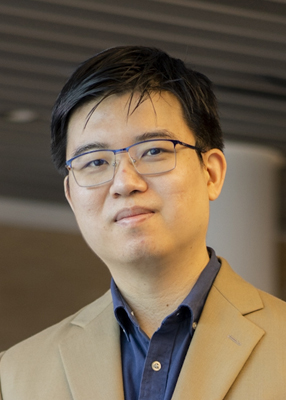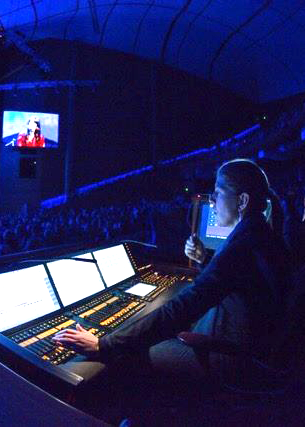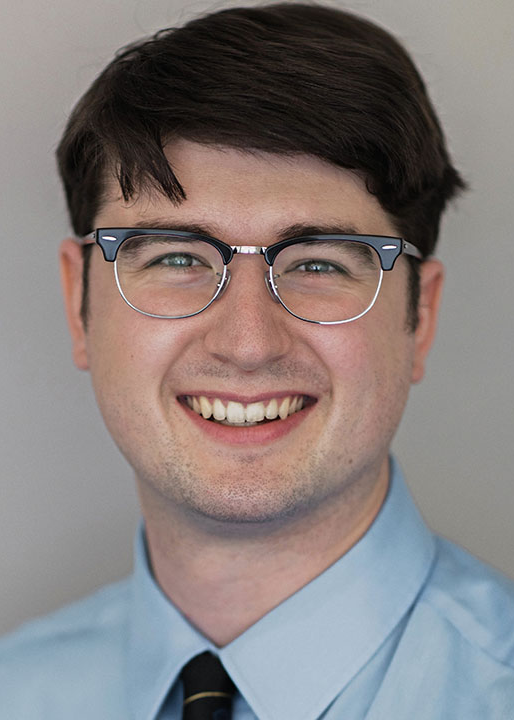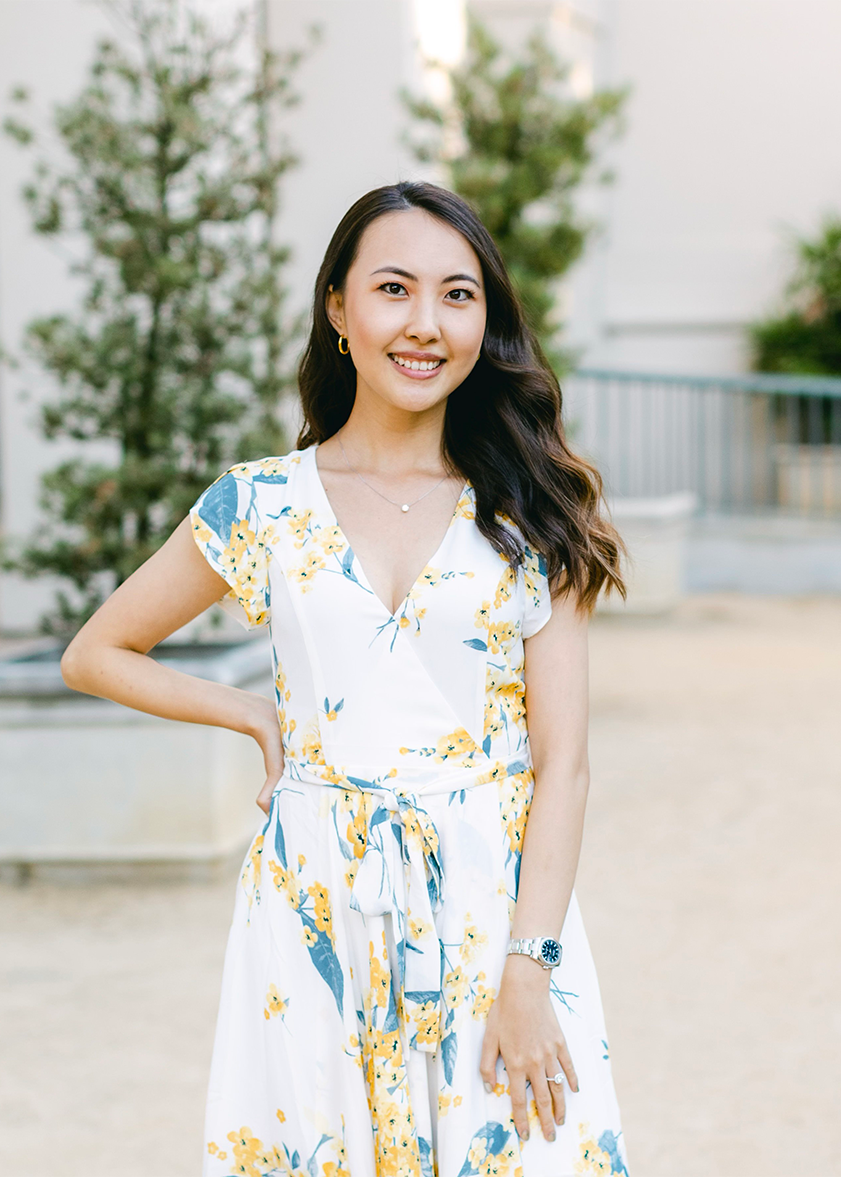Justin Tse

Why did you choose your program at UBC and what did you enjoy most about it?
This is going to be the most cliché answer, but the truth is that I came to UBC searching for my identity.
I never thought that I’d actually go to UBC because I was supposed to go to one of these University of California schools. But 9/11 happened, and soon after the Iraq War, I suddenly found myself thinking a lot about Canada. The next thing I knew, I was looking at all of these interesting programs on the UBC website: Religion, Literature, and the Arts, English, Classics, History Honours.
These were the programs I was looking through because I was thinking about my identity. Over the course of my childhood, my dad became more involved in Chinese churches and eventually became a full-fledged pastor. I was experimenting with creative writing at the time too, and I found it very difficult to narrate my experiences, even when I turned to fiction and poetry. I felt that I needed to know more about what the ‘Chinese church’ was all about, and UBC seemed like a good place to do that.
To my dismay, I learned that I couldn’t pick any of the cool programs I wanted to major in until my third year. That’s how I stumbled on Arts Foundations, which gave me a broad exposure to a number of humanities and social sciences disciplines.
After Foundations, I had to choose where I was going to go next. The history honours programme was especially attractive. It seemed like a decent way of continuing with the search for how to narrate Chinese Christian identity. Around the time I was graduating, I started asking around if anybody would take me on for grad school. My rationale for staying at UBC was that there were a lot of Chinese Christian communities to study in Vancouver; also, there was a girl (reader, she married me). Eventually I was referred to David Ley, who was a professor in geography. Two conversations later with the geographer, I defected to geography for grad school.
I wrote a master’s thesis on a transnational Hong Kong church and a doctoral dissertation on Cantonese-speaking Protestant engagements with Pacific Rim civil societies before 2012. I set out to find my identity and ended up getting educated in fields that weren’t all about me.
What choices did you make at UBC that contributed to your career success / journey?
Honestly, I think I did not appreciate how much UBC is a centre for studying the region that is problematically called the ‘Pacific Rim’ until I left. I think some people in my field would not appreciate me using the term ‘Pacific Rim’; it’s been accused, among many other things, of being a settler colonial formation that also manages to cast Asians as a kind of ideal economic subject in liberal societies. I remember being keenly aware of these problems with the term even as an undergrad, where I had some of my first exposures to Indigenous epistemologies in Foundations and History Honours too. I also took a directed studies course with Henry Yu when I was in grad school. We learned all about the radical origins of Asian American studies, which forms some of the basis for the programme in Asian Canadian and Asian Migrations Studies at UBC now. When I say that UBC was and is still a hub for studying the Pacific Rim, I mean that we learned how to critique the concept to its core too.
One book that shaped my undergraduate experience was Timothy Taylor’s Stanley Park. In fact, re-reading it a few weeks ago gave me the impetus to do this alumni profile. I read it three times as an undergraduate, once in Foundations, once in History Honours, and once in a literature of British Columbia course. As someone new to Vancouver, it gave me a sense of the social discussion in the city around the concept of the ‘local,’ Indigenous presences, the Pacific Rim, and food cultures. I don’t know if that’s a choice I made – the book was assigned three times – but I remember doing it all three times. And yet, revisiting it recently brought me right back to the Vancouver I was encountering at the time.
What was your first job after graduation and what other jobs did you have before your current position?
After I finished my PhD, I moved to Seattle to take up a Social Sciences and Humanities Research Council of Canada Postdoctoral Fellowship in Comparative Religion at the University of Washington. I found that they also liked to talk about the Pacific Rim there, but they assigned me after nine years of a Canadian education to teach the core course in the program on American Religion. I also found myself teaching a course in Cultural Geography on a sessional basis back across the border at Simon Fraser University.
In 2016, the Asian American Studies Program at Northwestern University hired me as a Visiting Assistant Professor to teach Asian American studies core courses, like Asian American history, geographies, social movements, and religion. I taught courses on ‘the Chinese American experience’ (where my argument is that there isn’t just one) and on Global Chinatowns, where we began quite auspiciously by watching Roman Polanski. Northwestern was the place where my colleagues mentored me into a fellow faculty colleague. It was a labour of love, and I remain deeply grateful to them for continuing my education.
Is your current career path as you originally intended? What challenges did you face in launching your career?
I would say that I did end up becoming a full-time academic after all. The path here was not smooth, though. I feel that when I graduated from grad school at UBC, I was rather wide-eyed and had to be mentored into understanding how academic institutions, including the job market, actually worked.
One person who provided a lot of mentorship for me during some of the difficult times was Minelle Mahtani, who is now at the Social Justice Institute at UBC. At the time, she had a radio show on Roundhouse Radio 98.3 FM, and she invited me to come on every two weeks to talk about what I called ‘grounded theologies,’ the way that theological narratives circulate through current events. Doing radio opened me up to the practice of narration. If you want listeners to pay attention, then you have to tell stories. Minelle taught me how to tell stories on air, and I am forever grateful for all the practice she gave me.
What do you like about your current job and what do you find challenging? How does it relate to your degree?
I’m now in my third year at Singapore Management University in a unit called the Office of Core Curriculum. We offer a required course for all students at our university that is called Big Questions. The themes shift every year. This year it’s ‘war and peace.’
The idea is that pre-professional students like ours need to be equipped to do what we call ‘integrative thinking,’ which is to be able to draw connections across disparate sets of material and work creatively in an interdisciplinary way. I tell my students that some of the most practical things they learn in my courses is how to have a free-flowing discussion and how to write a paper because in both cases, they are learning to manage the unmanageable words that get away from them and slip through their fingers like sand.
As I teach here, I often reflect on my UBC education. I find myself slipping back into my own first-year materials in Arts Foundations especially, where I too had to learn how to follow a free-flowing conversation, read a book a week, and write papers too. It’s why I ended up re-reading Stanley Park. As I watch my students wrestle with these new ideas and skills in university education, I find myself reflecting on how I struggled too.
From your experience, what has been the value of having an Arts degree?
To me, an Arts degree equips a person with integrative skills. I wanted to study Chinese Christians because it was an integral part of my life. It also had to be integrated into conversations in the world that flowed through the university. An Arts degree gives you a taste of what those intellectual currents are and prepares someone to be able to continue to square their interests with the important things that are going on in the world. In this way, an Arts degree provides a deep sense of integration. It shows me that my experiences and encounters actually connect me to that world, and an Arts education helps me to articulate what those connections might be.
What advice would you give to students and alumni interested in breaking into your industry?
I always tell people who ask me if they should go into academia that they need to ask something of themselves, because the going can get rough in this profession. Do you have a question, I ask, that can only be answered in the academy, and if you don’t answer it, then you’ll shrivel up and die? If there is any other way to answer that question, I’d encourage that person to pursue a life outside of academic life. But if there is something — and there was for me — then it might be something that might grow into an unexpected encounter with various intellectual fields of inquiry, and if that’s the case, then maybe — but only maybe — academia might be the place for you, even if the going gets rough.
What advice would you give your graduating self?
Read Stanley Park. It doesn’t have anything to do with Chinese Christians; read it anyway! And don’t read it to dissect it. Read for story. It’s a good one. It might teach you how to tell some good ones someday too!
Justin Tse



Why did you choose your program at UBC and what did you enjoy most about it?
This is going to be the most cliché answer, but the truth is that I came to UBC searching for my identity.
I never thought that I’d actually go to UBC because I was supposed to go to one of these University of California schools. But 9/11 happened, and soon after the Iraq War, I suddenly found myself thinking a lot about Canada. The next thing I knew, I was looking at all of these interesting programs on the UBC website: Religion, Literature, and the Arts, English, Classics, History Honours.
These were the programs I was looking through because I was thinking about my identity. Over the course of my childhood, my dad became more involved in Chinese churches and eventually became a full-fledged pastor. I was experimenting with creative writing at the time too, and I found it very difficult to narrate my experiences, even when I turned to fiction and poetry. I felt that I needed to know more about what the ‘Chinese church’ was all about, and UBC seemed like a good place to do that.
To my dismay, I learned that I couldn’t pick any of the cool programs I wanted to major in until my third year. That’s how I stumbled on Arts Foundations, which gave me a broad exposure to a number of humanities and social sciences disciplines.
After Foundations, I had to choose where I was going to go next. The history honours programme was especially attractive. It seemed like a decent way of continuing with the search for how to narrate Chinese Christian identity. Around the time I was graduating, I started asking around if anybody would take me on for grad school. My rationale for staying at UBC was that there were a lot of Chinese Christian communities to study in Vancouver; also, there was a girl (reader, she married me). Eventually I was referred to David Ley, who was a professor in geography. Two conversations later with the geographer, I defected to geography for grad school.
I wrote a master’s thesis on a transnational Hong Kong church and a doctoral dissertation on Cantonese-speaking Protestant engagements with Pacific Rim civil societies before 2012. I set out to find my identity and ended up getting educated in fields that weren’t all about me.
What choices did you make at UBC that contributed to your career success / journey?
Honestly, I think I did not appreciate how much UBC is a centre for studying the region that is problematically called the ‘Pacific Rim’ until I left. I think some people in my field would not appreciate me using the term ‘Pacific Rim’; it’s been accused, among many other things, of being a settler colonial formation that also manages to cast Asians as a kind of ideal economic subject in liberal societies. I remember being keenly aware of these problems with the term even as an undergrad, where I had some of my first exposures to Indigenous epistemologies in Foundations and History Honours too. I also took a directed studies course with Henry Yu when I was in grad school. We learned all about the radical origins of Asian American studies, which forms some of the basis for the programme in Asian Canadian and Asian Migrations Studies at UBC now. When I say that UBC was and is still a hub for studying the Pacific Rim, I mean that we learned how to critique the concept to its core too.
One book that shaped my undergraduate experience was Timothy Taylor’s Stanley Park. In fact, re-reading it a few weeks ago gave me the impetus to do this alumni profile. I read it three times as an undergraduate, once in Foundations, once in History Honours, and once in a literature of British Columbia course. As someone new to Vancouver, it gave me a sense of the social discussion in the city around the concept of the ‘local,’ Indigenous presences, the Pacific Rim, and food cultures. I don’t know if that’s a choice I made – the book was assigned three times – but I remember doing it all three times. And yet, revisiting it recently brought me right back to the Vancouver I was encountering at the time.
What was your first job after graduation and what other jobs did you have before your current position?
After I finished my PhD, I moved to Seattle to take up a Social Sciences and Humanities Research Council of Canada Postdoctoral Fellowship in Comparative Religion at the University of Washington. I found that they also liked to talk about the Pacific Rim there, but they assigned me after nine years of a Canadian education to teach the core course in the program on American Religion. I also found myself teaching a course in Cultural Geography on a sessional basis back across the border at Simon Fraser University.
In 2016, the Asian American Studies Program at Northwestern University hired me as a Visiting Assistant Professor to teach Asian American studies core courses, like Asian American history, geographies, social movements, and religion. I taught courses on ‘the Chinese American experience’ (where my argument is that there isn’t just one) and on Global Chinatowns, where we began quite auspiciously by watching Roman Polanski. Northwestern was the place where my colleagues mentored me into a fellow faculty colleague. It was a labour of love, and I remain deeply grateful to them for continuing my education.
Is your current career path as you originally intended? What challenges did you face in launching your career?
I would say that I did end up becoming a full-time academic after all. The path here was not smooth, though. I feel that when I graduated from grad school at UBC, I was rather wide-eyed and had to be mentored into understanding how academic institutions, including the job market, actually worked.
One person who provided a lot of mentorship for me during some of the difficult times was Minelle Mahtani, who is now at the Social Justice Institute at UBC. At the time, she had a radio show on Roundhouse Radio 98.3 FM, and she invited me to come on every two weeks to talk about what I called ‘grounded theologies,’ the way that theological narratives circulate through current events. Doing radio opened me up to the practice of narration. If you want listeners to pay attention, then you have to tell stories. Minelle taught me how to tell stories on air, and I am forever grateful for all the practice she gave me.
What do you like about your current job and what do you find challenging? How does it relate to your degree?
I’m now in my third year at Singapore Management University in a unit called the Office of Core Curriculum. We offer a required course for all students at our university that is called Big Questions. The themes shift every year. This year it’s ‘war and peace.’
The idea is that pre-professional students like ours need to be equipped to do what we call ‘integrative thinking,’ which is to be able to draw connections across disparate sets of material and work creatively in an interdisciplinary way. I tell my students that some of the most practical things they learn in my courses is how to have a free-flowing discussion and how to write a paper because in both cases, they are learning to manage the unmanageable words that get away from them and slip through their fingers like sand.
As I teach here, I often reflect on my UBC education. I find myself slipping back into my own first-year materials in Arts Foundations especially, where I too had to learn how to follow a free-flowing conversation, read a book a week, and write papers too. It’s why I ended up re-reading Stanley Park. As I watch my students wrestle with these new ideas and skills in university education, I find myself reflecting on how I struggled too.
From your experience, what has been the value of having an Arts degree?
To me, an Arts degree equips a person with integrative skills. I wanted to study Chinese Christians because it was an integral part of my life. It also had to be integrated into conversations in the world that flowed through the university. An Arts degree gives you a taste of what those intellectual currents are and prepares someone to be able to continue to square their interests with the important things that are going on in the world. In this way, an Arts degree provides a deep sense of integration. It shows me that my experiences and encounters actually connect me to that world, and an Arts education helps me to articulate what those connections might be.
What advice would you give to students and alumni interested in breaking into your industry?
I always tell people who ask me if they should go into academia that they need to ask something of themselves, because the going can get rough in this profession. Do you have a question, I ask, that can only be answered in the academy, and if you don’t answer it, then you’ll shrivel up and die? If there is any other way to answer that question, I’d encourage that person to pursue a life outside of academic life. But if there is something — and there was for me — then it might be something that might grow into an unexpected encounter with various intellectual fields of inquiry, and if that’s the case, then maybe — but only maybe — academia might be the place for you, even if the going gets rough.
What advice would you give your graduating self?
Read Stanley Park. It doesn’t have anything to do with Chinese Christians; read it anyway! And don’t read it to dissect it. Read for story. It’s a good one. It might teach you how to tell some good ones someday too!



